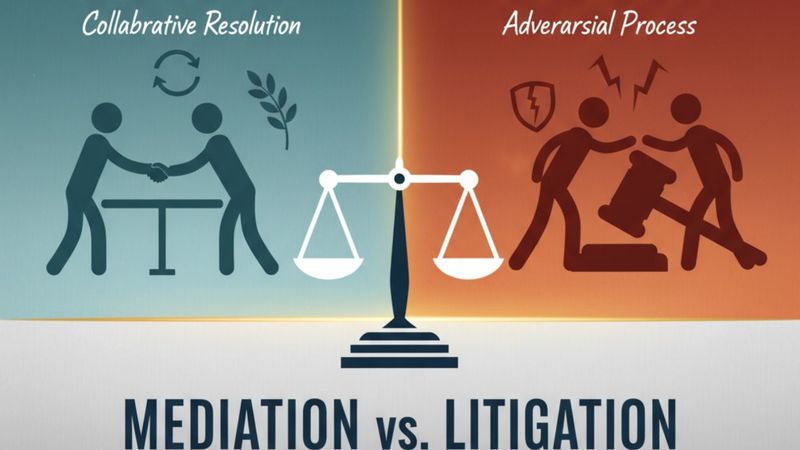Legal Separation vs Divorce: Complete Guide to Making the Right Choice
Deciding to end or adjust a marriage is never easy. For many couples, choosing between legal separation and divorce can feel overwhelming. Both legal paths offer different solutions depending on your personal circumstances, financial situation, and emotional readiness. Understanding these differences can help you make an informed decision that aligns with your needs and future goals.
What is Legal Separation?
Legal separation is a formal arrangement in which a married couple lives apart but remains legally married. Unlike divorce, it does not dissolve the marriage.
Legal separation allows couples to live separately while making agreements regarding finances, child custody, and property. It also provides time for reflection, counselling, or reconciliation without ending the marriage. For some, legal separation can be easier to reverse if both partners decide to reunite.
Legal separation can be a practical choice for couples who are unsure about permanently ending the marriage, want to protect financial interests, or wish to maintain certain social, religious, or cultural considerations.
What is Divorce?
Divorce is the legal termination of a marriage. It completely ends the marital relationship and allows both partners to remarry.
Divorce involves decisions about property, maintenance, and child custody, which are typically finalized through the court. It offers a clear path to move on personally and legally. Once finalized, a divorce is not easily reversible. Divorce is generally considered when reconciliation is no longer possible or when continuing the marriage is not in the best interest of one or both partners.
Key Differences Between Legal Separation and Divorce
Legal separation keeps the marital status intact, whereas divorce legally ends the marriage. Legal separation allows for easier reconciliation, while divorce provides a definitive end. In terms of finances, legal separation allows couples to mutually decide on financial agreements, whereas divorce usually involves court-approved settlements. For child custody, both legal separation and divorce address arrangements, but divorce may involve more formal court decisions. Emotionally and socially, legal separation is generally less drastic, while divorce results in complete separation.
Who Should Consider Legal Separation?
Legal separation may be a suitable option if you need time to reflect before making a permanent decision, want to protect your financial or property rights, have children and want to manage custody arrangements without ending the marriage, or wish to maintain social, religious, or cultural considerations.
Who Should Consider Divorce?
Divorce may be appropriate if you believe reconciliation is not possible, want to permanently end the marriage, need legal closure for financial or personal reasons, or are looking to remarry in the future.
Steps to Take Before Making a Decision
Before choosing legal separation or divorce, it is important to reflect on your personal, emotional, and financial goals. Open communication with your spouse can help clarify expectations and concerns. Seeking professional guidance from a qualified family lawyer can provide clarity on your options. Counselling or mediation may sometimes resolve issues without legal intervention. Reviewing shared finances, property, and responsibilities helps you make a more informed decision.
Conclusion
Choosing between legal separation and divorce is a deeply personal decision. Legal separation can offer time and space to evaluate the relationship while protecting rights, whereas divorce provides a clear, legal end to the marriage. Understanding your priorities, seeking professional advice, and considering the emotional impact can help you make the best choice for your future.




